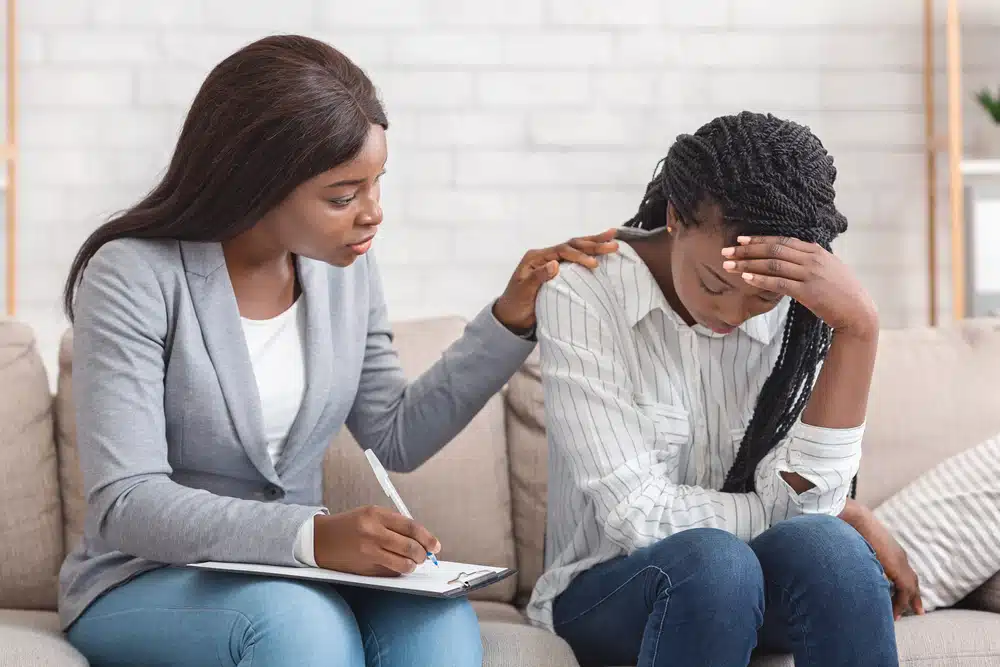24/7 Helpline:
(866) 899-221924/7 Helpline:
(866) 899-2219
Learn more about Bipolar Disorder Treatment centers in Osceola County

Other Insurance Options

Sliding scale payment assistance

Ambetter

Horizon Healthcare Service

Absolute Total Care

State Farm

CareSource

Cigna

Choice Care Network

Private insurance

UnitedHealth Group

Kaiser Permanente

BHS | Behavioral Health Systems
Beacon

WellPoint

Group Health Incorporated

Health Net

BlueShield

Molina Healthcare

Self-pay options

Health Choice

Turning Point Counseling
Turning Point Counseling - 17th Street offers outpatient treatment for individuals with alcohol and/...

Aspire Health Partners – Oasis
Aspire Health Partners Oasis Campus is a behavioral health treatment center for adolescents 13-17 in...

House of Freedom
House of Freedom is a private rehab located in Kissimmee, Florida. House of Freedom specializes in t...

The Transition House
The Transition House, in Saint Cloud, Florida, is a nonprofit behavioral and mental health care cent...

Orlando Behavioral Health – Outpatient
Orlando Behavioral Health – Outpatient is a private rehab located in Kissimmee, Florida. Orlando Beh...

Transition House – Outpatient
Transition House - Outpatient is a non-profit rehab located in Saint Cloud, FL. Transition House - O...

Transition House
Transition House is a private, residential rehab located in Kissimmee, Florida. Transition House spe...

Park Place Behavioral Healthcare
Park Place Behavioral Healthcare offers outpatient and inpatient treatment for individuals with alco...

The Blackberry Center
The Blackberry Center in Florida near Orlando specializes in providing substance abuse treatment for...

Park Place Behavioral Healthcare – Poinciana
Park Place Behavioral Healthcare - Poinciana provides outpatient treatment programs for individuals ...

Intensive Treatment Modalities Group
Intensive Treatment Modalities Group hast provided mental health treatment and care for adult and ad...

Aspire Health Partners
Aspire Health Partners is an outpatient treatment facility that offers substance abuse treatment for...

Focus 12 Halfway House
Focus 12 Halfway House, located in Saint Cloud, Minnesota, is a treatment center for men that provid...

Central Minnesota Mental Health Center
Central Minnesota Mental Health Center is a private rehab located in Saint Cloud, Minnesota. Central...

Effective Living Center
Effective Living Center is a private rehab located in Saint Cloud, Minnesota. Effective Living Cente...

CentraCare Health – St. Cloud Hospital Behavioral Health Clinic
CentraCare Health - St. Cloud Hospital Behavioral Health Clinic is located in St. Cloud, Minnesota. ...

New Season – St. Cloud Metro Treatment Center
New Season - St. Cloud Metro Treatment Center is a private rehab located in Saint Cloud, MN. New Sea...

Cloud Hospital Inpatient Mental Health Unit
Cloud Hospital Inpatient Mental Health Unit is a private rehab located in Saint Cloud, Minnesota. Cl...

Focus 12
Focus 12 is a private rehab located in Saint Cloud, Minnesota. Focus 12 specializes in the treatment...










Park Place Behavioral Healthcare – Community Housing
Park Place Behavioral Healthcare - Community Housing provides inpatient and outpatient treatment pro...

Darryl Strawberry Recovery Center
The Darryl Strawberry Recovery Center is a 28-day residential program designed to treat addictions a...

Osceola Counseling Center Center
Osceola Counseling Center Center is a private rehab located in Kissimmee, Florida. Osceola Counselin...

Mental Health Resource Center
Mental Health Resource Center is a private rehab located in Kissimmee, Florida. Mental Health Resour...

Devereux Service Center – Outpatient
Devereux Service Center – Outpatient is a private rehab located in Kissimmee, Florida. Devereux Serv...

IMPOWER
IMPOWER is a private rehab located in Kissimmee, Florida. IMPOWER specializes in the treatment of du...

ACT Center
ACT Center provides an outpatient substance abuse evaluation and treatment. ACT Center utilizes a ba...

SERD
SERD is a private rehab located in Kissimmee, Florida. SERD specializes in the treatment of Mental H...

Life and Work Soulutions
Life and Work Soulutions is a private counseling clinic located in Kissimmee, FL. Life and Work Soul...

New Season – Mid Florida Metro Treatment Center
New Season - Mid Florida Metro Treatment Center is a private rehab located in Kissimmee, FL. New Sea...

Turning Point of Central Florida – Fortune Road
Turning Point of Central Florida - Fortune Road offers outpatient treatment for individuals with alc...

Turning Point of Central Florida – N. Thacker Avenue
Turning Point of Central Florida - N. Thacker Avenue offers outpatient treatment for individuals wit...

Easthaven Halfway House
Easthaven Halfway House is a private rehab located in Saint Cloud, Minnesota. Easthaven Halfway Hous...

Sobriety First
Sobriety First is a private rehab located in Saint Cloud, Minnesota. Sobriety First specializes in t...

Center for Family Counseling
Center for Family Counseling is a private rehab located in Saint Cloud, Minnesota. Center for Family...

Minnesota Counseling Center
Minnesota Counseling Center is a private rehab located in Saint Cloud, Minnesota. Minnesota Counseli...























